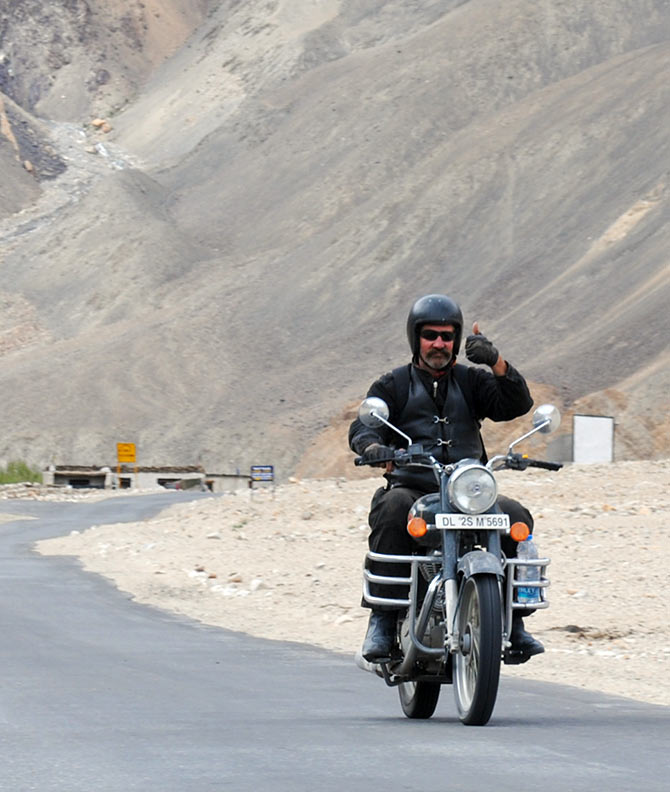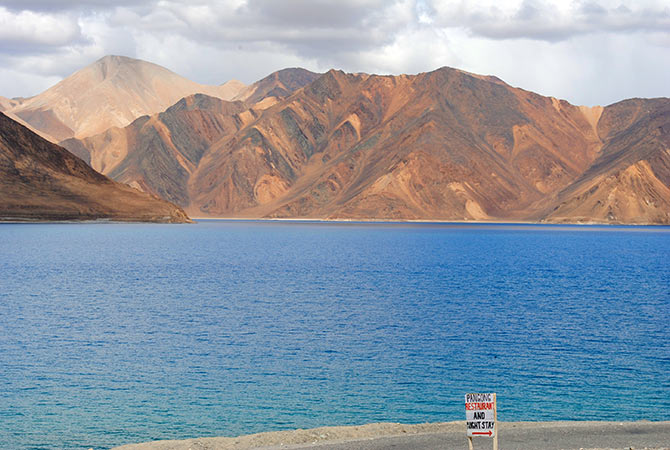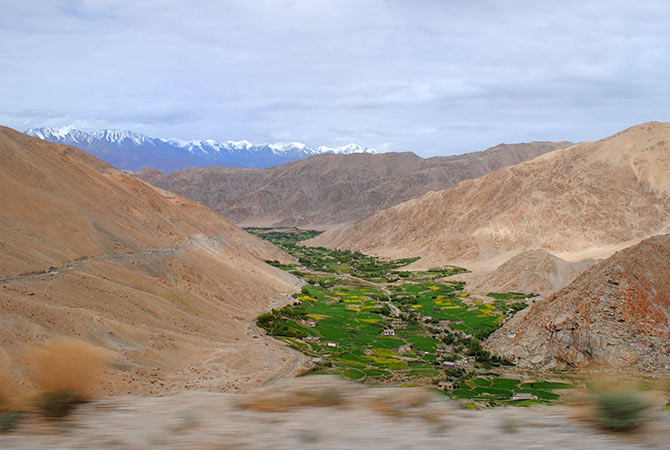It’s very important to evaluate your own and your bike's physical condition before you decide to set out on a long ride, especially to a difficult terrain like Ladakh. Here are some tips on how to keep yourself and your bike totally fit for the trip!

One should begin working on the lower back because the ride is tough and bumpy. Cardio exercises should be done because the air is really thin at high altitude passes like Baralach La, and Khardung la. You can prepare your bike or get your luggage packed in just two days but physical strength for the ride requires bigger efforts and focused attention consistently!
The most common problems faced by riders in Ladakh are loss of appetite, nausea, acute mountain sickness (AMS), fatigue, insomnia, shortness of breath, nose-bleeding and drowsiness. It gets extremely difficult to move ahead even if a single problem attacks the rider.
The problems associated with riding in the mountains can be attacked only by increasing your strength and lung capacity. Dr Amit Girey, Mumbai based physiotherapist and fellowship in sports and science says, “Breathing technique plays an important role for optimising your riding and increasing your performance on the trail,” he says. “Higher altitudes are always a matter of concern for a rider who starts panting.” he says.
These are among a few things that one can practice to increase strength and stamina.
Blow balloons: Whether the trip is well planned or not, you can always do this exercise of blowing balloons anywhere and everywhere. It increases your lung capacity with enough oxygen to meet bodily needs.
Aerobic exercises: Cycling and swimming is also highly recommended to increase your breathing stamina.
Rhythmic breathing: Get your breathing in sync with the pedalling, in the ratio of 1:1. If that proves to be tough for you, you can try 1:2. Practice different combos, as riders say, it help a great deal.
Mouth and nasal breathing: People suffering from any nasal problems such as sinusitis or nasal congestion, are suggested to practice breathing through the mouth at high altitude as they will then be able to move air rapidly and obtain a higher level of oxygenation.
Exercises: Try to increase anaerobic capacity through exercises like holding your breath for a little amount of time. One can practice this off bike. Let the body get used to being under oxygen deprivation for a period of time. After a while, it will help.
Preparing bike for the ride
For the motorcycle riders the world over, Ladakh remains a beautiful, yet challenging journey that needs to be undertaken at least once in a lifetime. However preparing your motorcycle for such a journey is a task in itself and if done correctly, goes long way in ensuring that you have a relatively hassle free ride to Ladakh.
Things to look out for when getting your bike done for Ladakh

Clutch plates: It is very essential to have clutch plates in good condition, before starting a ride; otherwise you can end up with a motorcycle, which refuses to climb steep hilly roads of Ladakh. So make sure to get your clutch plates checked and replace them if necessary.
Piston rings: If your bike has been consuming engine oil lately; it is best to get the piston-cylinder kit checked for wear and tear. Also get the valves checked as well.
Timing chain: Another important thing you need to pay close attention to is the timing chain, which can end up causing mechanical failure during the ride or make your motorcycle perform sub optimally.
Drive chain and sprockets: Check the drive chain and sprockets for wear.
Suspensions: Riding on the harsh terrain of Ladakh with a bike loaded with rider and luggage can take a toll on the suspension of your motorcycle. Get the front and rear suspension checked, and if the need be, get them changed.
Swing arm bush: Get the swing arm bush properly checked for slackness.
Air filter/spark plug: If your air filter and/or spark plug is over 10000 km old or approaching this figure, get them changed. Don’t throw the old ones out, keep them as spares, might be of use later.
Clutch and accelerator wires: If your clutch and accelerator wires are over 10000 km old, get them changed but keep the old ones as spare. If they are not in need of change then at least get them lubricated.
Brake shoes/pads: Get the brake pads and shoes checked for wear and tear, if they can’t last for 5000 km, immediately get them changed. Also get the brake fluid changed or just top it up, if you had changed it recently.
Con set: Con set is an essential part of the bike and if it’s loose, it can affect the handling of the motorcycle. At the time of service get it properly checked and change it if the need be.
Engine oil/filter: If the engine oil is over and above 500 km old, get it changed. Also do change the oil filter. In case your bike uses some oil strainer, get it cleaned.
Electricals and battery: Get the electrical wiring checked, check bulbs to see if they are functioning properly. Also clean the headlight seal beam and brake light to ensure better visibility enroute. Make sure your bike’s battery is performing well, this is especially important if your motorcycle does not have kick start.
Fasten all nuts and bolts: Get all the nuts and bolts fastened properly, in case any is missing, get the installation done.
Carburetor tuning: Keep the carburetor tuning as close to stock as it is possible. Running it rich will cause problems in high altitude areas and running it lean would lead to overheating in plains.
General check: Ensure that everything is working properly and all the fluids are topped up, i.e. battery water, engine oil etc. Ensure all fuel lines are intact and there is no leakage anywhere.
Tyres: Check both tyres for wear and signs of cuts. If either of them is nearing the end of their life, get them changed. If you need to change tyres, get these dual purpose tyres, since they perform well on and off road.
Wheel alignment: If your motorcycle has spoke wheels, get them checked.
Learn minor repair/servicing yourself!
Now since you have gone through the above routine, your bike should hold through for the entire trip, but it’s always a good idea to ask your motorcycle mechanic to teach you minor chores like tightening rear brakes, adjusting clutch and chain, fixing puncture, replacing bulbs and changing cables.

Final checks on the D-Day and beyond:
- Now that you have fully prepared your motorcycle for Ladakh, and are ready to start your ride, there are a few checks you need to perform daily.
- Check if all of the lights, horn and indicators are working
- Check fluid levels such as engine oil and coolant
- Check tyres for air pressure, puncture
- Check if chain is lubricated properly and isn’t too tight or too loose
- Check for leakages
If your bike is working fine let it be. It would be a good idea to do a weekend trip to try it out and see how it behaves. It would be great to ride one new bike and make sure that your bike is up to the mark. Do feel fit before setting off, cause nothing else but a good and healthy ride will be remembered later.
Photographs: Reuben NV/Rediff.com











